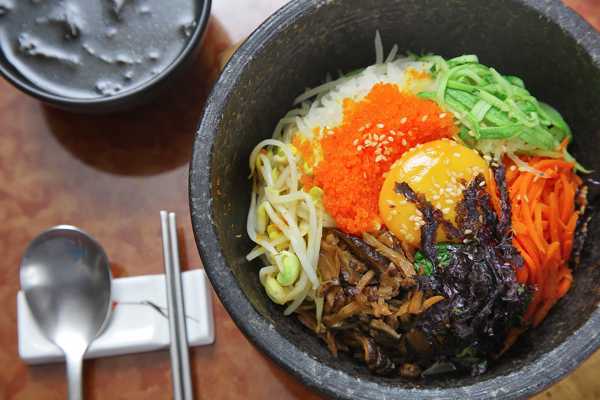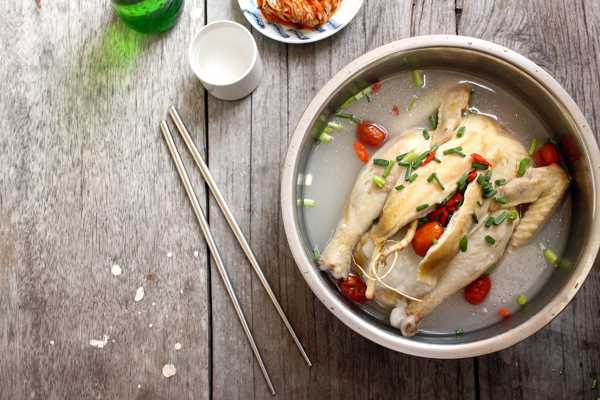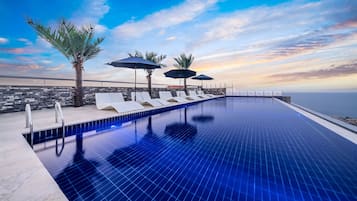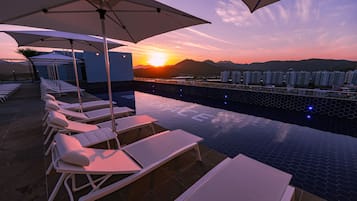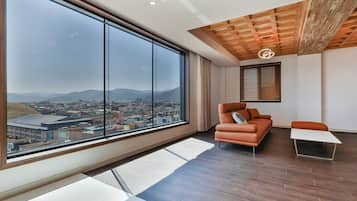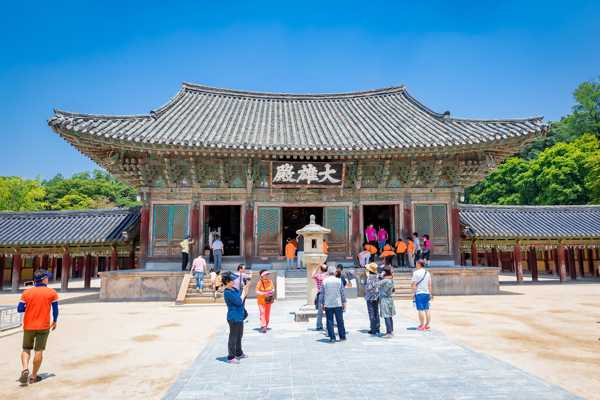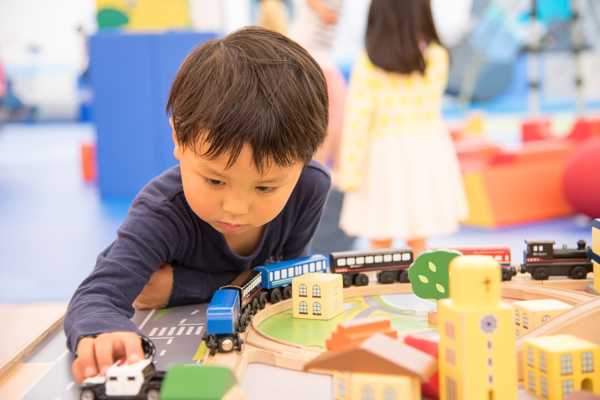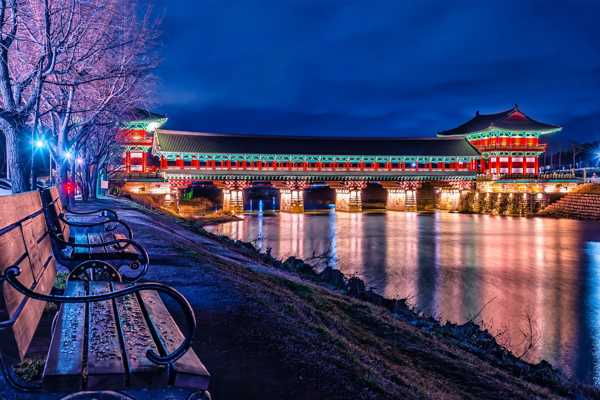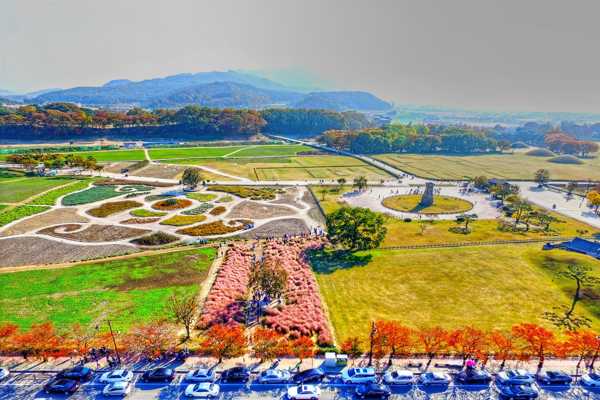Gyeongju is the type of place where you go to just admire beautiful scenery created by many pine forests and the sea. Jusangjeolli Padosori-gil, Samneung Forest, Gyerim Forest and the Tomb of Munmu of Shilla are all great places for slow nature walks. At Gyeongju East Palace Garden, the first animal and botanical garden in Korea, and Girimsa (temple), you can really get a sense of historical Korean artistry. Yangdong Folk Village and Eupcheon Mural Village are also highly recommended if you want to catch a glimpse of the lives of Gyeongju locals.
- 1
Jusangjeolli Padosori-gil

- Budget
- Couples
- Group
Jusangjeolli Padosori-gil boasts a unique and wonderful landscape thanks to the spectacular shapes of columnar joints created by volcanic activity. The path was designed to harmonise with the environment and allow visitors to see a full view of the columnar joints at a glance. There are even information panels where you can read all about the magic of columnar joints. As a bonus, admission to the nearby Jusangjeolli Observatory is free. It should make for a great opportunity to see in person what most see only in pictures.
Location: Eupcheon-ri, Yangnam-myeon, Gyeongju, Gyeongbuk
Map - 2
Samneung Forest

- Budget
- Couples
- Families
- History
The forest surrounding the Three Royal Tombs of Shilla and the Royal Tomb of Gyeongae of Shilla is called Samneung Forest, where irregular pine trees grow in meandering shapes. This forest boasts a mystical landscape and occupies one side of Mt. Nam, which is said to be a sacred Shilla-era site. It's also a place where many photographers visit to take pictures of the fantastic pine forest, especially on foggy days when rays of sunlight peek through the canopy.
Location: Bae-dong, Gyeongju, Gyeongsangbuk-do, South Korea
Map - 3
Tomb of Munmu of Shilla

- Budget
- Couples
- Families
- History
The Tomb of Munmu of Shilla is an underwater tomb that was built according to the will of King Munmu, who commanded that he be buried in the East Sea, to prevent Japanese invasions even after his death. As the only marine tomb in the world, this tomb was built using natural rocks, reflecting the ingenuity of the Shilla people. Shamans often perform various rituals near the tomb, which is also quite a unique attraction.
Location: 26 Bonggil-ri, Yangbuk-myeon, Gyeongju, Gyeongsangbuk-do, South Korea
Mapphoto by vatar/편성재 - 직접촬영 (CC BY-SA 3.0) modified
- 4
Gyerim Forest

- Budget
- Couples
- Families
- History
Gyerim Forest, situated between Cheomseongdae astronomical observatory and Wolseong Palace Site and also known as Sirim, is said to be the birthplace of King Gim Al-ji of Shilla. Because it's an old forest, it is full of strangely shaped old trees. In spring, it becomes a lovely landscape of yellow rapeseed in bloom. The unique scenery created by rapeseeds and bizarre old trees makes for some unique and atmospheric photo opportunities.
Location: Gyo-dong, Gyeongju, Gyeongsangbuk-do, South Korea
Mapphoto by 한솔임 (CC BY-SA 4.0) modified
- 5
Yangdong Folk Village

- Budget
- Families
- Group
- History
Well-preserved ancient homes of Korean aristocrats can be found in Yangdong Folk Village, which has been designated as a UNESCO World Heritage Site not only for its scale but also for its traditional value and architectural style. This village, which reflects Confucianist and pungsu (feng shui) values, is a human settlement of great cultural heritage where the descendants of ancient nobles still reside. The narrow alleys and the pond by the entrance to the village are elegant, and because it's not a bustling tourist attraction, this village is recommended for those who like taking slow, quiet walks.
Location: 93 Yangdongmaeuran-gil, Gangdong-myeon, Gyeongju, Gyeongsangbuk-do, South Korea
Mapphoto by wikimedia.org (CC BY-SA 3.0) modified
- 6
Gyeongju East Palace Garden

- Adventure
- Budget
- Families
- Group
Located near the special tourist zone of Bomun Lake, Gyeongju East Palace Garden is the first zoo and botanical garden of Korea. Reflecting the history of the ancient city of Gyeongju, all the buildings are architecturally designed in the form of traditional Korean homes (hanok). Lots of glass is used in the structures to ensure that plants grow well under maximum light exposure. The garden is built on a large site, so an entire day might pass by as you walk from corner to corner to see everything from cute parrots to all the great photo spots. If you're travelling with children, check out the stamp tour for a fun and exciting time.
Location: 74-14 Bomun-ro, Gyeongju, Gyeongsangbuk-do, South Korea
Open: Daily from 9.30 am to 7 pm
Mapphoto by Roadgo (CC BY-SA 3.0) modified
- 7
Eupcheon Mural Village

- Budget
- Couples
- Families
Eupcheon Port is a designated national fishing port in Yangnam-myeon, Gyeongju. The area became more famous for the murals found all throughout the village than the fishing and it has established itself as the hottest attraction on Haeparang Trail. The murals suit the village perfectly and provide great photo opportunities wherever you go. Also, some hidden treasures can be found when walking along Jusangjeolli Padosori-gil; some chairs are disguised as paintings, so keep your eyes peeled for a surprise.
Location: Eupcheon-ri, Yangnam-myeon, Gyeongju, Gyeongsangbuk-do, South Korea
Mapphoto by Cramk777 (CC BY-SA 4.0) modified
- 8
Girimsa

- Budget
- Couples
- Families
- Group
- History
Situated at the foot of Mt. Hamwol and built by Gwang Yu, a Buddhist monk in the Shilla period, Girim Temple was the centre of warrior-monk activities during the Japanese invasions of Korea in the 16th century. Many cultural assets have been left intact because battle damage was fortunately not severe. A walk along the tranquil forest path here always lifts the spirit. Girim Temple boasts a picturesque landscape thanks to the crystal-clear Hoam Stream and lush green forest, offering visitors a glimpse into the Buddhist culture from the Shilla to Joseon eras.
Location: 437-17 Girim-ro, Yangbuk-myeon, Gyeongju, Gyeongsangbuk-do, South Korea
Map - 9
Gyeongju Namsan

- Budget
- Couples
- Families
- Group
- History
Mt. Nam of Gyeongju is filled with splendid Buddhist ruins that reflect the rise and fall of Shilla, from Hyeokgeose, the central figure of Shilla's founding story, to Kim Si-seup, author of the 15th-century collection of novellas Geumo Sinhwa. Hidden through Mt. Nam are seven Korean national treasures and cultural assets. Although the climb is difficult, you'll be rewarded with sporadic encounters with Shilla-era treasures. Be sure to check in advance, however, because you might miss them if you're not careful.
Location: Bae-dong, Gyeongju, Gyeongsangbuk-do, South Korea
Open: Daily from 6 am to 6 pm, night hiking prohibited
Mapphoto by Whtjs1349 (CC BY-SA 4.0) modified


